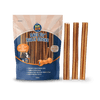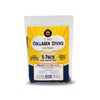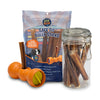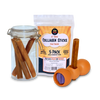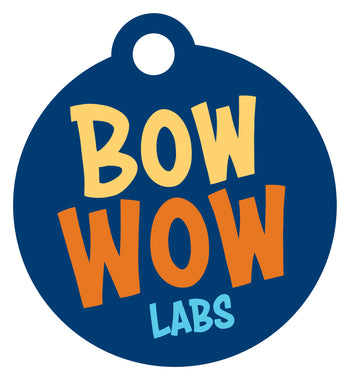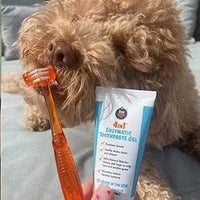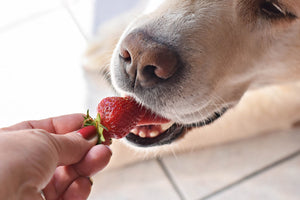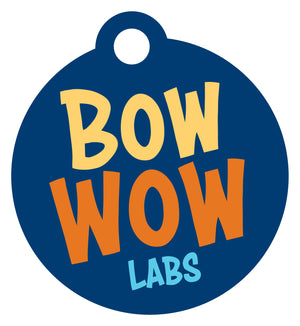As responsible dog owners, ensuring the safety and well-being of our furry companions is paramount. National Poison Prevention Week serves as a timely reminder to take proactive measures to protect our pets from potential hazards lurking in our homes and surroundings. At Bow Wow Labs, our mission revolves around keeping dogs SAFE, happy, and healthy. In line with this commitment, we're dedicated to equipping dog owners with the knowledge and tools to prevent poisoning and promote a thriving environment for our fur babies
Identifying Common Pet Poisons:
Pet poisoning can occur in various ways, from ingesting toxic foods to encountering harmful substances in the environment. It's crucial to be aware of common pet poisons, including:
Household chemicals: Cleaning products, pesticides, and certain plants can pose a significant threat to pets if ingested or inhaled.
Human medications: Many medications, such as pain relievers, antidepressants, and vitamins, can be toxic to pets if consumed.
Foods that are toxic to pets: A variety of foods are harmful to dogs, including:
- Alcoholic beverages - Toxic to pets, can cause intoxication, coma, and death.
- Apple seeds - Contain cyanide, which is poisonous to pets.
- Apricot pits, Cherry pits, Peach pits - Contain cyanide and can be toxic to pets.
- Chocolate - Contains theobromine, which is toxic to dogs and cats.
- Chives, Onions, Mustard seeds - Contain compounds that can damage red blood cells and cause anemia.
- Coffee (grounds, beans, and chocolate-covered espresso beans) and tea Contain caffeine, which is toxic to pets.
- Grapes and raisins - Can cause kidney failure in dogs.
- Gum (especially sugar-free varieties containing Xylitol) - Xylitol is toxic to pets and can cause a rapid release of insulin, leading to hypoglycemia and liver failure.
- Hops (used in home beer brewing) - Can cause malignant hyperthermia in dogs, resulting in a rapid increase in body temperature and potentially death.
- Macadamia nuts - Can cause weakness, depression, vomiting, tremors, and hyperthermia in dogs.
- Moldy foods - Can contain toxins that may cause neurological problems.
- Potato leaves and stems (green parts), Rhubarb leaves, and Tomato leaves and stems (green parts of the plant) - Contain solanine and oxalates, which can be toxic to pets.
- Salt (in large amounts) - Can lead to electrolyte imbalances and dehydration.
- Yeast dough - Can expand in the stomach, causing bloating and potentially leading to a twisted stomach, a life-threatening condition.
Outdoor hazards: Antifreeze, fertilizers, and certain plants and mushrooms found in gardens can be toxic to pets if ingested.
Preventing Pet Poisoning:
Here are some proactive steps you can take to prevent pet poisoning:
- Secure household chemicals and medications in cabinets or shelves out of reach of pets.
- Be mindful of toxic foods and keep them safely stored away from pets.
- Create a pet-friendly garden by removing plants that are toxic to animals and avoiding the use of harmful chemicals.
- Keep a close eye on your pet during walks and outdoor excursions to prevent them from encountering potentially hazardous substances.
As we observe National Poison Prevention Week, let's reaffirm our dedication to safeguarding the well-being of our beloved pets. We can create a nurturing environment where our furry friends can thrive by remaining vigilant and taking proactive measures to prevent poisoning. Together, let's continue to uphold the mission of keeping dogs safe, happy, and healthy—because every pet deserves a life filled with love and protection.
In the unfortunate event of a pet poisoning emergency, it's crucial to act swiftly. Contact your veterinarian or a pet poison control hotline immediately. Keep handy the contact information for your local animal emergency clinic and the ASPCA Animal Poison Control Center (888-426-4435) or the Pet Poison Helpline (800-213-6680). Be prepared to provide details such as the type of toxin ingested, the quantity, and your pet's current condition. Do not induce vomiting or administer home remedies without professional guidance, as some treatments may exacerbate the situation. Time is of the essence in such emergencies, so remain calm and follow the instructions provided by the experts to give your furry friend the best chance of recovery.


